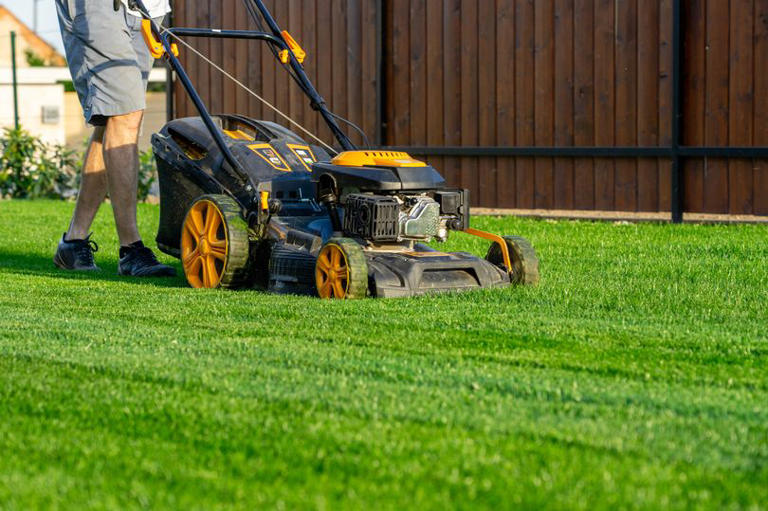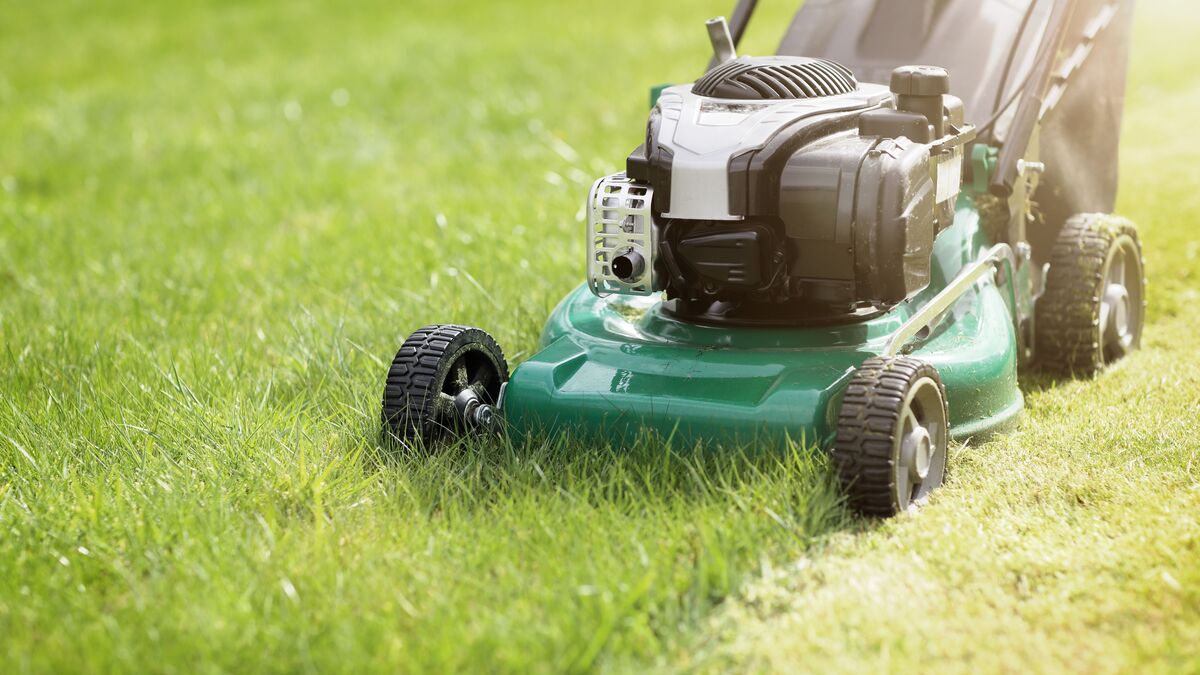Owning rental property comes with its fair share of responsibilities, and surprisingly, lawn care is one of the easiest to overlook. Most people think it’s just grass. However, neglecting or mismanaging your lawn can quietly eat into your profits. When you think of overwatering, lawn mowing, or ignoring weed control, the little things add up fast. Poor lawn maintenance can affect your curb appeal as it can lead to HOA fines, unsatisfied tenants, and expensive fixes that could have been avoided.
If you’re managing one property or several, understanding these common lawn mistakes can help you protect your investment and keep your tenants happy. Continue reading below as this post will walk you through the most frequent lawn care mistakes most landlords make and other valuable information. Because at the end of the day, a healthy lawn is more than just nice to look at; it’s also good business.
How Proactive Management Prevents Costly Lawn Mistakes
1. Reduction Of Expensive Equipment
Do you have any other applications for a skid-steer loader other than the landscaping project you want to do? You can trim your lawn using zero-turn mowers or shape your trees and shrubs with commercial-grade pruning tools.
You can avoid investing in equipment, storing it, buying gasoline, getting insurance, and training employees to run and maintain it by working with a proactive rental management team in Washington DC. You can save money on property improvement projects by hiring a proactive management company to handle maintenance, which eliminates a large equipment investment.
2. Prevention of Weeds and Diseases
Weed management requires dedication, perseverance, and a significant investment of time and effort. It’s never finished. When it comes to weed control, there is no “winter break.” Weeds tend to grow more vigorously and more quickly in the spring and summer, so your landscaping will need even more care during these times. To create modern curb appeal, minimalist features can be a great choice since it is also low-maintenance.
That’s where lawn care companies start their service with a pre-emergent treatment and frequent walk-around inspections to identify problems proactively before they get out of control. Hiring these professionals helps property owners save not only money, but also valuable time and save the grass from being lost, which will not look good for your curb appeal. If you pass on a pre-emergent treatment and skip the scout inspection, the chances of ending up with a widespread infestation that can cost you several times the initial investment are likely.
3. Avoidance of Common Lawn Care Mistakes
Many expensive lawn challenges arise out of mistakes that could have been averted. Maintaining a healthy lawn involves more than just watering when it begins to dry out or mowing when it appears overgrown. You can gradually destroy your lawn by the little things you do, sometimes without even realizing it.
It may seem harmless to cut your grass too short, water it excessively, or mow it in the same way every time, but these actions eventually erode it and promote weeds, disease, and barren places. Preventative measures, such as alternating mowing patterns, overseeding in thin areas, and watering deeply and rarely, stress the lawn less and make it less susceptible to insects, disease, and drought.
Common Lawn Mistakes that Cost Landlords Money

1. Inefficient Watering Practice
Watering may seem like one of the simplest lawn care tasks, but it’s surprisingly easy to get wrong. Many do-it-yourselfers mistakenly believe that more water means greener grass, but in reality, too much water saturates the soil, suffocating the roots and promoting fungal diseases like dollar spot and brown patches. Over time, persistently soggy soil prevents the roots from growing deeply, making the lawn reliant on frequent watering to stay alive. On the other hand, underwatering leaves the grass dry and brittle, making it prone to thinning and bare spots.
Professionals evaluate weather patterns, grass types, and soil types to develop an effective watering schedule that promotes deep root development. Long-term water savings result from deeper roots because they increase the lawn’s resistance to drought and reduce its need for frequent watering. By providing aeration services, which lessen soil compaction and enhance water absorption, businesses can even aid in preventing overwatering.
2. Neglecting Soil Health
The foundation of a good lawn is healthy soil. Water and nutrients cannot reach the roots when the soil is compacted. Foot traffic and lawn equipment cause the soil underneath the lawn to get compacted over time. By forcing air out of the soil, this compaction prevents oxygen, nutrients, and water from getting to the roots of the grass. Compacted lawns frequently contain high layers of thatch, which can harbor pest infestations and diseases. Even a lawn that receives regular watering can become thin and have long-term issues if it is not aerated and dethatched.
In order to release compaction and establish channels for air, water, and nutrients to reach the root zone, aeration entails making tiny holes in the soil. Dethatching improves the lawn’s ability to breathe and absorb nutrients by removing the excess accumulation of organic detritus. Periodically aerate your lawn, particularly if it’s compacted by clay soil or heavy traffic. To improve soil drainage and structure, include organic elements such as compost.
3. Reactive vs Proactive Weed and Pest Management
Applying insecticides, fungicides, or herbicides incorrectly frequently results in unanticipated harm. Broad-spectrum herbicides can destroy weeds and grass, but incorrect pesticide application can damage pollinators and other useful insects or cause runoff into the environment. Ignorant spot-treating of weeds can even cause chemical burns that leave more exposed areas, which weeds easily take over.
Reputable lawn care businesses like ours provide services that address weeds and pests in a proactive, focused manner. Pre-emergent herbicides can be used to stop weed seeds from sprouting in the first place, which lessens the requirement for reactive treatments. Expertise is essential to guaranteeing that all target areas are covered and that no susceptible regions are impacted, and expert weed and pest control services provide just that.
Final Thoughts
When landlords do their own lawn care, they often think they’re saving money because they won’t have to pay for services, but they often don’t realize the true cost of mistakes. Proper lawn care necessitates a thorough understanding of grass types, soil health, seasonal timing, and many other factors. You may prevent frequent mowing errors by cutting the grass at the proper pace, at the appropriate time, and by keeping up with upkeep. Maintaining a healthy and lush lawn can be achieved by using the right mowing techniques.
